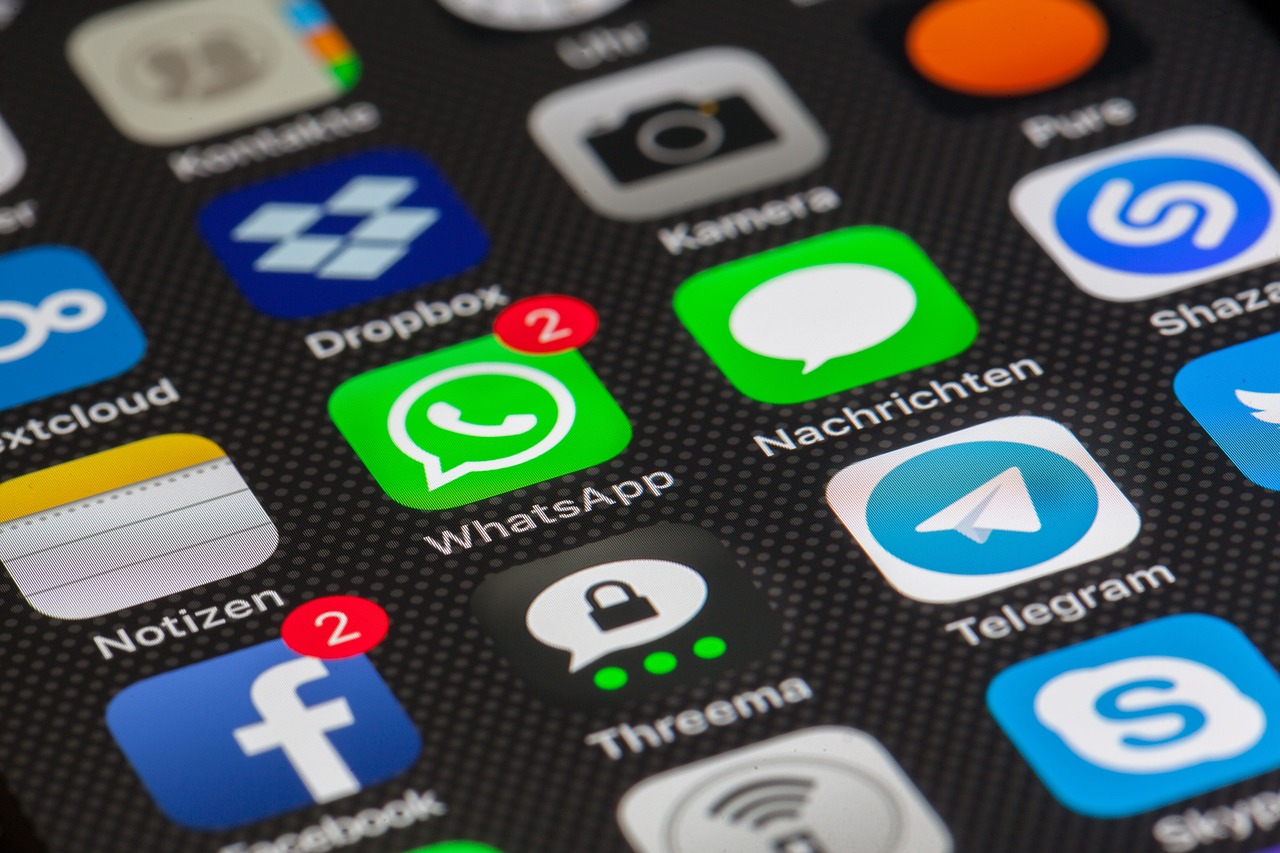WhatsApp and Privacy in the Digital Age: Impacts and Guidelines

September 4, 2023
In today’s digital age, privacy has become a paramount concern for users worldwide. With billions of messages exchanged daily, WhatsApp stands as one of the most popular messaging platforms globally. But how does WhatsApp fare when it comes to user privacy? This article delves into the impacts of WhatsApp on privacy and offers guidelines for users to safeguard their information.
Find Out What Changed in the New WhatsApp Update
The Evolution of WhatsApp and Privacy
WhatsApp, since its inception in 2009, has undergone significant changes, especially concerning user privacy. Initially lauded for its end-to-end encryption, which ensures that only the sender and receiver can read a message, the platform has faced scrutiny over its data-sharing practices, particularly after its acquisition by Facebook in 2014.
Later, WhatsApp made headlines when it announced an update to its privacy policy. This update informed users that certain information, such as contact details and some message content, would be shared with Facebook for advertising purposes. The policy indicated that users who were uncomfortable with this change had the option to delete their accounts, but there was no alternative way to opt-out. This announcement led to significant public outcry.
Clarification on Data Sharing
Following the backlash, WhatsApp clarified its stance. The data being shared with Facebook was only from conversations with business accounts. Private messages exchanged between friends and family remained unaffected. Despite this clarification, the damage was done. A significant number of users, concerned about their privacy, began exploring and moving to alternative platforms.
In answer, recognizing the importance of user trust, WhatsApp introduced several new privacy features in 2022:
- Stealth Exit from Groups: Users can now leave a group chat without notifying other members.
- Enhanced Online Notices Control: Users have more control over their online status visibility.
- Preventing Screenshots: A feature, set to release soon, will prevent users from taking screenshots of specific messages.
- Extended Message Deletion: The time frame for deleting sent messages, even from the recipient’s device, has been extended to 2 days.
Today, while WhatsApp employs end-to-end encryption, ensuring message content remains private, the platform does collect certain user data:
- Account details, such as phone numbers.
- Group and community memberships.
- Usage patterns, including frequency and specific services used.
- Device and connection specifics.
- General location data.
It’s also worth noting that while WhatsApp itself has robust privacy measures, it interacts with third-party apps that may have different privacy policies. When users grant these apps access, they operate based on their own policies.
Businesses, especially those in regulated sectors like finance and healthcare, need to be particularly cautious. Despite WhatsApp’s privacy policies, these businesses have their own regulations to ensure data security. Platforms like LeapXpert offer solutions that allow businesses to communicate securely on WhatsApp while maintaining compliance with industry regulations.
Future Concerns
With Mark Zuckerberg’s interest in integrating the messaging services of Facebook, Instagram, and WhatsApp, there are rising concerns about the potential implications for user privacy. Such integration could lead to more data sharing across platforms, raising further privacy concerns.
Can you Know Who is Watching if You are Online on WhatsApp?
WhatsApp’s Impacts on Privacy
Positive Impacts on Privacy
End-to-End Encryption: WhatsApp implemented end-to-end encryption in 2016, which ensures that only the sender and recipient can read the messages. Even WhatsApp itself cannot access the content of the messages, enhancing user privacy and security.
Secured Voice and Video Calls: The end-to-end encryption also applies to voice and video calls, making these forms of communication more private and less susceptible to interception by malicious actors.
Two-Factor Authentication: WhatsApp introduced two-factor authentication, adding an extra layer of security to user accounts and reducing the risk of unauthorized access.
Private Group Chats: Users can create private group chats with a select group of contacts, providing a secure and controlled environment for discussions.
Status Privacy Controls: Users can control who sees their WhatsApp status updates, offering the option to share updates only with specific contacts or groups.
Negative Impacts on Privacy
Data Sharing with Facebook: In 2014, WhatsApp was acquired by Facebook. In 2016, WhatsApp updated its privacy policy to allow limited data sharing with Facebook, such as phone numbers and usage patterns. This sparked concerns about user data being used for targeted advertising and other purposes.
Metadata Collection: While message content remains encrypted, WhatsApp collects metadata, including information about contacts, call times, and message timestamps. This metadata can reveal patterns of communication and potentially compromise user privacy.
Data Storage and Backups: Backups of WhatsApp conversations are stored on cloud services like Google Drive and iCloud, which might not offer the same level of end-to-end encryption as the app itself. This could potentially expose user data if these cloud services are breached.
Third-Party Integrations: WhatsApp has allowed certain third-party integrations, which could lead to the sharing of user data with external services, impacting privacy.
Location Sharing: While users can control location sharing, there are still privacy concerns if location data is shared with the wrong people or misused by apps that have access to it.
Account Verification: WhatsApp has faced issues with attackers exploiting the account verification process to gain unauthorized access to accounts, posing a threat to user privacy.
Guidelines for Privacy-Conscious WhatsApp Usage
Despite WhatsApp’s nuanced and complex position on privacy, certain guidelines help users reinforce their own security by having their messages kept private:
Update Privacy Settings
Your journey toward maintaining privacy on WhatsApp begins with managing your privacy settings. These settings allow you to control who can see your personal information. Within the “Settings” menu, navigate to “Account” and then “Privacy.” Here, you’ll find options to customize who can view your profile picture, status, and last-seen information. Choosing “Everyone,” “My Contacts,” or “Nobody” lets you decide who gets access to these details. Regularly revisit these settings to ensure they align with your evolving privacy preferences.
Secure Chats
One of WhatsApp’s standout features is its end-to-end encryption. This encryption ensures that only you and the recipient of your messages can read their contents. Messages are scrambled in a way that only the recipient’s device can decrypt and interpret them. Confirm the security of your chats by looking for the “Encrypted” label at the top of the chat window. It’s important to note that this level of security only applies to messages exchanged between devices with WhatsApp installed and properly configured encryption settings.
Two-Step Verification
Bolster the defense of your WhatsApp account with two-step verification. This involves creating a personal six-digit PIN that acts as an additional layer of protection beyond your phone number. To enable this feature, go to “Settings” > “Account” > “Two-step verification.” You’ll be prompted to enter your chosen PIN and provide an email address. This email address serves as a recovery option in case you forget your PIN. By setting up two-step verification, even if someone manages to obtain your SIM card or device, they won’t be able to access your account without the PIN.
Limit Data Shared with Facebook
While WhatsApp’s policy allows for some data sharing with Facebook, you still maintain a degree of control. Navigate to “Settings” > “Account” > “Share my account info” and uncheck the box if you wish to limit data sharing. Be mindful that this might influence the extent to which your WhatsApp data contributes to your Facebook experience and the ads you encounter on the platform.
Be Cautious of Backups
WhatsApp offers the convenience of automatic cloud backups to ensure your conversations are not lost when changing devices. However, this convenience might come at the expense of security. Cloud backups are not inherently encrypted to the same extent as end-to-end encrypted messages. If you’re concerned about the security of your backups, consider disabling automatic cloud backups and opting for manual backups to a secure local location, like a computer or an encrypted external drive.
Regularly Review Permissions
Android and iOS allow you to manage the permissions granted to each app, including WhatsApp. Access your device’s settings and locate the “Apps” or “Applications” section. Find WhatsApp in the list of installed apps and review the permissions it has been granted. Permissions might include access to your camera, microphone, location, and more. Revoke any permissions that seem unnecessary for the app’s functionality, reducing potential avenues through which your privacy could be compromised.
Use Authentication Features
Depending on your device’s capabilities, consider utilizing biometric authentication methods like fingerprint recognition or facial recognition to unlock your WhatsApp app. This adds an extra layer of security to prevent unauthorized access even if someone gains physical access to your device.
Stay Informed
Privacy and security policies can change over time. To remain well-informed about any updates or changes to WhatsApp’s privacy practices, periodically review the platform’s official privacy policy and announcements. This ensures that you stay up to date with any modifications that might affect your privacy.
How to Send a Video Message on WhatsApp
Conclusion
As WhatsApp continues to be a central tool for communication in the digital age, it’s imperative to balance the convenience it offers with the need to maintain your privacy. By adhering to these guidelines, you can harness the power of WhatsApp’s features while proactively safeguarding your personal information. Taking these steps empowers you to make informed decisions about your privacy within the dynamic landscape of modern digital communication.








